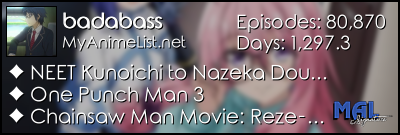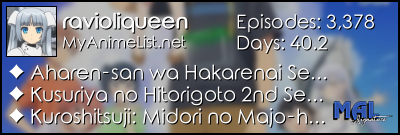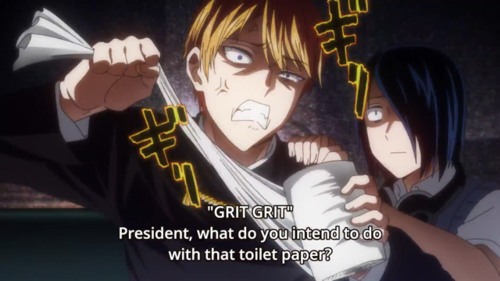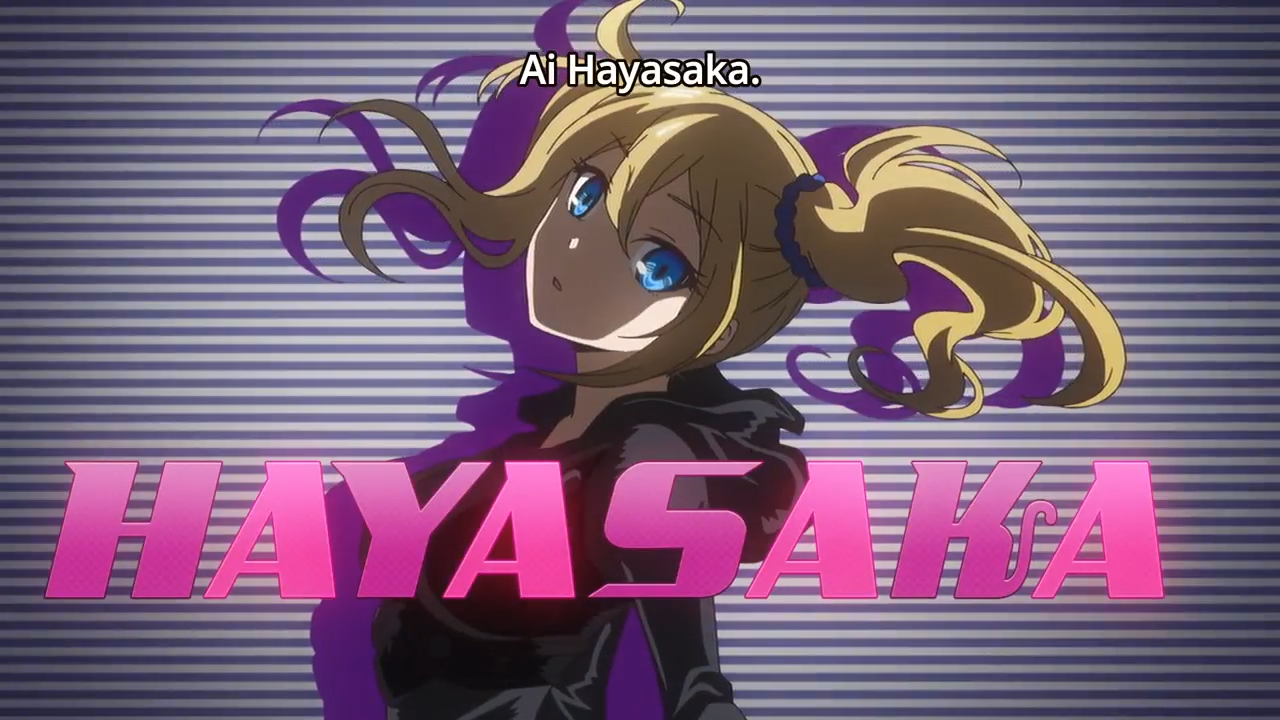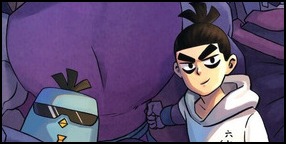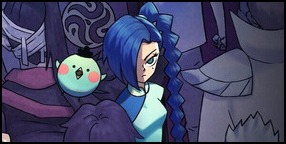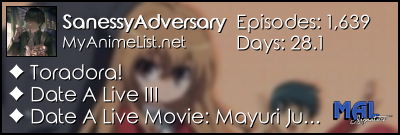“I swear I’ll make you say it. The words I love you.”
Kaguya-sama: Love is War is a freight train barreling through the anime season defying all expectations of the romantic-comedy genre. Like a Gatling gun, it infinitely fires off perfectly timed visual gags with an expert presentation. The entire show is a cacophony of over-the-top hilarity and manic energy, this is one hell of a ride. Frankly, if you’re not laughing you probably have a broken jaw.
Watching Kaguya-sama’s second season is like witnessing an elaborate symphony. The woodwinds, brass, strings, and percussion all play in harmony. There’s hardly a shot that doesn’t utilize an imaginative technique involving the shot composition, editing, sound design, or staging. Kaguya-sama did not invent all of the tricks it employs, but it’s the only anime to use nearly every single one in the book. It's a visual feast, from the mesmerizing transitions, the art style swaps, to the vast spaces conveyed through the staging. Director Shinichi Omata has an authentically genuine view of human behavior, which he expresses in crisp, introspective, and sometimes startlingly heartfelt close-ups. Omata’s signature technique is his well-timed close-ups, but his greatest contribution to this material is his storyboarding. Regardless of the punchline he adapts, he always turns it into gold. Each shot flows into the next connected with his unique aesthetic. From an eye to a cup of coffee, to a nighttime city landscape.
The thrill of seeing Kaguya and Miyuki’s mind games never ceases to excite me. This season, the secret conflict between Kaguya and Shirgane intensifies to the point of hysterics. Coupled with feverish voice performances, the eccentric soundtrack, and the murderous precision of the director and you get a picture functioning at maximum capacity. Yet it somehow one-ups itself with each episode. The real battles they wage are won by fighting dirty. Watching their smoldering spats devolve into mudslinging and bitter posturing is hilarious. Underneath the thin veneer of sniveling politeness for a public appearance lies pure rage between rivals. Ultimately both fighters become so wrapped up in their self-centered minds they stupidly destroy him—or herself. Both of them have tightly-plotted game plans, but they never go the way you anticipate. Kaguya is frighteningly stoic and exuberantly self-absorbed. Aoi Koga kills it once again as Kaguya. Her range is phenomenal, she sells her role like none other. Despite her inherent absurdity, she is believable. As we see during the election arc, she will stomp you to a pulp if you get in her way. Kaguya’s life is consumed in hyperbolic ambition to win over Shirogane. Miyuki is, as ruthless as ever, an overachiever striving to overcome his modest upbringing. Gradually they both begin to accept their feelings of love for one another, but neither can act on it.
Unlike your typical comedy anime, none of the characters are joke dispensers. They’ve been developed into real people with individual personalities, backgrounds, and senses of humor. For that reason, when Ishigami lands a cynical zinger, it doesn’t feel like the writers are using a B-plot character to tell their latest puns. He’s cleverly commenting on the harsh truth under his breath—a joke no one but him would tell. Ishigami’s delightfully deadpan personality distinctively sets him apart. Every other side-character is so unique they could carry an entire show on their own. The supporting characters are as vivid and vital to the show as the leads. During the election arc, Miko Iino joins the fray winning unexpected popularity with the audience due to her relatable struggles with anxiety and her willingness to overcome it. Her moments on stage hit close to home. The execution of her arc earned her a permanent spot on the cast roster. Hayasaka, once again, is the voice of reason. She earned more screentime this season and she devoured every second of it. She calls out Kaguya internally and plays games with her. It’s always clear what she’s thinking, this girl is crazy. Her idiosyncrasies are so bizarre compared to the others, her kind of humor is unpredictable.
Comedy is a highly subjective genre, as such Kaguya-sama gets a lot of criticism. Much of it is fair critiques which I respect. But some of the ‘criticism’ is just nonsensical whining from pretentious elitists who don’t realize comedy has evolved since the 1990s. Rather than responding to each negative review individually, I thought I’d give you a list of contrarian talking points and the arguments debunking them.
One common critique of Kaguya-sama is the use of a narrator, which baffles me. Oftenly third-person narrators are used as a writer’s crutch for exposition and explaining jokes, but here that isn’t the case at all. The omniscient narrator is like a sports announcer, perfectly complimenting the high stakes war games with his booming voice and over-the-top commentary. He creates a metatextual connection with the audience by giving instant reactions to the action and rapidly reviewing the battle’s results. You’d expect him to be a reliable link to reality for a breath of fresh air, but his perception of love is suitably insane.
To those who find the comedy repetitive, it continually iterates on its premise neverendingly. The second season maintains the same simplistic setup, but why make a drastic change when the creators can consistently keep it fresh and entertaining? I've heard many critics of Kaguya-sama say “The romance doesn’t progress,” but it does. The whole show revolves around their relationship progressing at an intensely slow pace, it’s the point. There are social lines Miyuki and Kaguya can’t cross such as sharing personal information, physical contact, informal conversation, etcetera. Throughout the series, as they cross these lines, their romantic advances become increasingly suggestive. Respective to normal relationships their romantic interactions are immeasurably subtle, but at the moment they feel larger than life due to the context. Anyone whose been in love knows the first move is always the most difficult. It is blisteringly painful to cross the line into unknown territory. This show captures that once-in-a-lifetime feeling on the precise line between youth and maturity.
In a normal rom-com, this ultra-fine progression would feel forced, but here it makes so much sense because of their complicated relationship. One of the central themes, class disparity, prevents Kaguya from acting on her feelings because Shirogane is in a lower socio-economic class, her father would never allow them to date. Being an affluent business conglomerate, her father wants her to marry someone powerful and wealthy. Shirogane explicitly confirms this in an internal monologue when backed into a corner, “This is a matter of pride. Shinomyia and I come from different backgrounds. I thought it was necessary to have her confess to me before we could date as equal.” This class disparity is visualized in incredibly minor ways, such as Miyuki’s sister counting how many newspaper deliveries it’d take to buy a shirt. Seamlessly we now know she’s a hard worker without being bogged down by exposition. Juxtapose this moment with Kaguya curiously wondering why due to her privileged ignorance, and you get a nuanced class divide between real people. Pair this nuanced character writing with stunning direction and you have a masterpiece.
Kaguya-sama: Love is War is a passion project. These days TV anime are quickly made on the assembly line to maximize profit, and I understand why many people are dubious of a series as popular as this one. The small studio that created this knew their time and budget limitations. They worked around them not with flashy sakuga, but by employing every creative filmmaking technique they could. Every episode pushes the limits of the TV anime medium further and further—it never ceased to amaze me. When those final credits rolled each episode, all I could do was sit back, inhale, and realize I had been smiling the whole time. Kaguya-sama is packed full of mania and true love. Every twist and turn adds more depth for the next time you watch it. I can safely say this is the most fun I’ve ever had with an anime. I’m ready for more. |


 on
on 